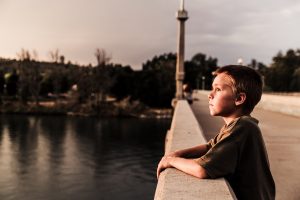
May 2, 2023, by Rupert Knight
From teaching world religions to teaching worldviews: Looking for the stories
In this blog, Dr Anne Lumb, Diocesan Schools Adviser, makes the case for taking a worldview approach to teaching primary RE and offers practical advice for getting started.
Introduction
Everyone loves a good story, from the youngest to the oldest. Story is the way we communicate, explore and discover meaning and purpose in our lives. Through story we connect with others and make sense of ourselves.
Each of the world faiths centres on the telling of stories which pass on traditions and values and help to create a community of belonging. Through story, individuals find a language to articulate spiritual mysteries, discover faith and are invited to locate their own story within the bigger narrative of their religious tradition.
However, storytelling is a universal activity not confined to religious faith traditions. In western society the prevailing narrative is a secular one although the underlying human values are usually shared by those who have a religious faith and those who do not.
Teaching RE in the primary phase can be challenging. A perceived lack of subject knowledge and confidence can create a sense of not wanting to get things wrong. However, by looking for the stories behind the headlines and understanding that we cannot know all the answers to the ‘big questions’ that will inevitably arise in a good RE lesson, RE lessons can become exciting, enquiry-based explorations of both religious and non-religious worldviews.
Taking a worldviews approach
Since the publication of the Commission on Religious Education (CoRE) Report, Religions and Worldviews: The Way Forward, in 2018, there has been a movement towards teaching worldviews in RE lessons.
So, what is a worldview? It is hard to define a worldview but everybody has one. It may be ‘religious’ or ‘non-religious’. There is diversity within worldviews. The Theos Thinktank have produced a helpful animation exploring the concept of worldviews. Identifying our own worldview can help us recognise the lens through which we are approaching worldviews that are different from our own.
Reflection: How would you define your worldview? How might this impact your approach to teaching (not just teaching RE)?

Why take a worldviews approach to teaching RE?
The movement towards taking a worldviews approach to teaching RE recognises that previous approaches to teaching world religions have focused on obtaining knowledge about a religion that can lead to a generalized and somewhat stereotypical image of what, for example, a Christian, Muslim or Hindu believes. A worldviews approach starts with the particular of an individual’s story before moving to identifying the general beliefs that are common to all members of their faith community. Such an approach draws on resources from the local community not just from wider society.
The worldviews approach places emphasis on context and the ways that context shapes a worldview. It develops the subject knowledge identified in Ofsted’s review of RE:
“The review refers to 3 different types of subject-specific knowledge that pupils learn in RE. Each of these is powerful and should not be confused with ‘mere facts’. The first is ‘substantive’ knowledge about various religious and non-religious traditions. The second type is ‘ways of knowing’, where pupils learn ‘how to know’ about religion and non-religion. The third type is ‘personal knowledge’, where pupils build an awareness of their own presuppositions and values about what they study. The review suggests that improvement in RE at both primary and secondary level includes knowing more of these ‘pillars of progression’. This prepares pupils to engage in a complex, multi-religious and multi-secular world.”
A worldviews approach allows space to explore and critically analyse individual worldviews, recognising the context (historical, geographical, sociological) which has helped to shape these worldviews and enabling pupils to identify the influences that have shaped their own worldview.
What does a worldviews approach look like in practice?
Bickleigh Down CofE Primary School are moving towards a worldviews approach in RE. They began by asking these questions:
Considering where we stand when we enter the RE classroom:
• What personal worldviews do we as teachers have?
• How does this impact our practice when we enter the RE classroom?
Considering where our children stand when they enter the classroom:
• How do pupils’ own worldviews impact upon their learning?
• Are pupils aware that we all hold different views when we enter the RE classroom?
They allow space to consider differing views about life’s ‘big questions’, explore ‘what makes me, me and you, you’ and discover that there is diversity within organized worldviews, or: “Being careful to talk about diversity within organised worldviews even with very young children. Helping children to recognise that even though two people may follow the same religion there is diversity within this organised worldview.”
Watch this video of the school from Goldsmiths University’s Innovative RE Case Studies to see these principles at work.
Crucially, a worldviews approach distinguishes between ‘organised’ and ‘personal’ worldviews and acknowledges that everyone has a worldview – no one is neutral. This creates space to explore non-religious worldviews alongside the traditional world faiths.

Approaching worldviews through story
Beginning with individual stories is a powerful way in to learning. There is a wealth of material available from:
• RE Today
• RE Online, including free downloadable resources to support the ‘Nobody stands nowhere’ video referred to earlier, ‘Telling My Worldview Story’
A great way to engage pupils and extend teacher knowledge is to use willing experts from within your school community to tell the story of their religious or non-religious worldview and how their beliefs are lived out in practice (beliefs in action). Your experts could be pupils, parents or members of staff as well as visitors from local faith groups.
Modelling a conversation between you as the teacher and an expert can be a powerful way of showing pupils how to conduct enquiry-based research through respectful dialogue between people with different worldviews. Individual story can then lead to the discovery of specific knowledge about religious or non-religious practices and beliefs.
The worldviews approach will require teachers to be prepared to go deeper into the exploration of diversity within worldviews rather than trying to cover an ever-increasing amount of knowledge about world faiths. Pupils will be required to develop skills and approaches that will prepare them for life within an increasingly diverse society rather than acquiring lots of general knowledge about world faiths.
A summary of the worldviews approach can be found in the document ‘Religion and Worldviews in the Classroom: developing a worldviews approach’.
Conclusion: Telling a different story

A worldviews approach to learning requires the development of listening skills, paying attention to the person telling their story, giving them time and valuing their narrative. This deepens understanding and respect, going beyond tolerance to celebrating difference and learning how to disagree well.
Pupils will gain not only knowledge of different worldviews (and of diversity within those worldviews) but also the wisdom and skills to question some of the stereotypical images of religion presented in the media. Telling the story of a Jewish community being enabled to keep open their synagogue because of the generosity of their Muslim neighbours in Bradford presents a very different picture of Islam from that usually portrayed in news reports. Exploring the faith of a Hindu teaching assistant brings the study of Hinduism to life in a meaningful way and generates respect for that person and their role within the school community.
Reflection
• What narratives are you promoting in your classroom?
• Whose stories are you telling and exploring?
• How are you enabling pupils to engage with beliefs and ways of living?
• How are you ensuring pupils are developing good subject knowledge that allows them to go deeper in their understanding of a worldview?
Top tips for teaching RE and worldviews
• BE PREPARED: with specific subject knowledge – go for depth rather than breadth.
• BE A LEARNER AND A LISTENER: explore with the children.
• BE OPEN: to discussing big questions and prepared to admit the limits of knowledge.
• BE CONFIDENT YET SHOW HUMILITY
No comments yet, fill out a comment to be the first

Leave a Reply